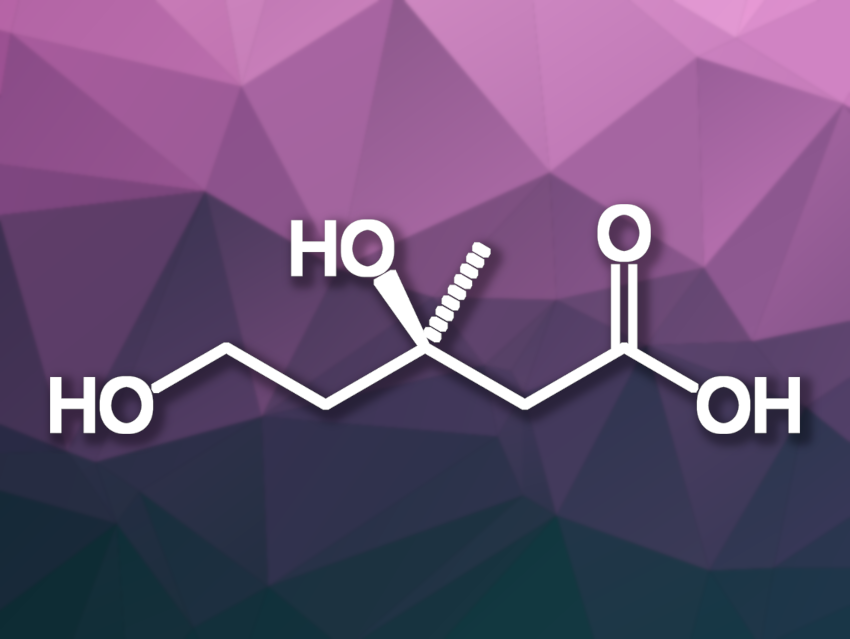Mevalonic acid (pictured) and its anion, mevalonate, are important in biochemistry. It acts as a precursor for the biosynthesis of terpenoids in the mevalonate pathway. The compound also has applications in the chemical industry as a precursor for, e.g., drugs and food additives. New methods for the sustainable production of mevalonate could, thus, be useful both economically and environmentally. In particular, producing value-added compounds from CO2 is interesting for both removing some of this greenhouse gas and reducing the reliance on fossil resources.
Katalin Kovacs, The University of Nottingham, UK, and colleagues have developed a method for the production of mevalonate using bacteria. The team used Cupriavidus necator, a bacterium that can live on CO2 and H2 alone. One challenge to using this approach is that the plasmids (small circular DNA molecules) used to supply the necessary genes for the production of the desired compound often do not remain in the cells over many generations.
To tackle this issue, the researchers paired the plasmid with a gene that is necessary for survival of the cells, using a variant of the bacterium in which exactly this essential gene had been removed. Thus, if the desired plasmid is lost, the cell dies, leaving only those cells that produce the desired compound to replicate. The team chose the genes encoding the enzyme RubisCO for this purpose. This enzyme is centcral to the fixation of CO2 in C. necator bacteria.
Using bacteria with this so-called “plasmid addiction system”, the team was able to successfully produce mevalonate from CO2. According to the researchers, the work is the first example of the production of “non-native” C6 molecules from C1 feedstocks in this strain of bacteria.
- Stable Platform for Mevalonate Bioproduction from CO2,
Marco Garavaglia, Callum McGregor, Rajesh Reddy Bommareddy, Victor Irorere, Christian Arenas, Alberto Robazza, Nigel Peter Minton, Katalin Kovacs,
ACS Sust. Chem. Eng. 2024.
https://doi.org/10.1021/acssuschemeng.4c03561


